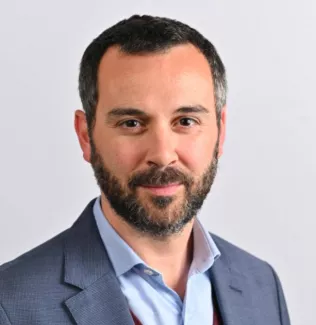The International Microbiota Observatory: what is it? Welcome to the results page
Promoting the importance of the microbiota for all.
True to its original mission, in 2023 the Biocodex Microbiota Institute, with the help of Ipsos, launched the largest survey ever carried out on the knowledge, behavior and perceptions of the world's populations on the subject of the human microbiota: the International Microbiota Observatory.
The aim of this international study is to raise awareness among the general public and healthcare professionals of the importance of their microbiota for their health.
A barometer of people's knowledge and behavior around the world, the International Microbiota Observatory scrutinizes population trends in each of the 11 countries surveyed, year after year.
In 2025, the survey confirms a steady rise in microbiota awareness, with more than 7 in 10 people now familiar with the term. However, this growing knowledge still struggles to convert into consistent daily behaviors. While healthcare professionals remain the most trusted source of information, only a minority of people receive repeated and comprehensive guidance. Yet those who do are significantly more likely to adopt positive habits. A promising signal that emphasizes once again the decisive role healthcare professionals play in bridging the gap between awareness and action.
What do people know about microbiota and how do they behave?

2025 edition
Discover the results
“Awareness about the microbiota is just the beginning. Taking action to preserve its balance is the following step. This year, the Biocodex Microbiota Institute has taken a step further by turning data into action. In partnership with Le French Gut, we’re translating knowledge into public engagement — empowering citizens, researchers, and healthcare professionals to work hand-in-hand for better health.”
Archives of previous editions of the International Microbiota Observatory

2024 archive
Discover the results
2023 archive
Discover the resultsA new partnership for its third edition
For the 2025 edition of the International Microbiota Observatory, the Institute partnered with Le French Gut to better understand what the French think about stool donation and microbiota testing.

Discover the results
France 2025: knowledge and behaviors about microbiotaSince 2024, the International Microbiota Observatory has been supported by a scientific committee
In 2024, a multidisciplinary international scientific committee was set up to:
- oversee the 2024 survey’s editorial process (made by Ipsos)
- give a critical analysis about the 2024’s survey & results in his field (gastroenterology, gynecology, diet…) in a scientific article, interview or other publication that could be shared on the Institute’s website and available in 7 languages
- promote and support the International Microbiota Observatory’s roll out on a national level among colleagues, physicians, patients, medical societies…
This scientific committee is made up of:

Hanna Stolińska-Fiedorowicz, PhD
Poland
Clinical dietician, lecturer, graduated from the Medical University of Warsaw.
She worked at the Institute of Food and Nutrition for 7 years.
Check her Linkedin profile here.

Joël Doré, PhD
France
Research Director at INRA & Scientific Director of the MetaGenoPolis.
Check his Linkedin profile here.

Purna C. Kashyap, M.B.B.S.
USA
Gastroenterologist, Mayo Clinic College of Medicine.
Check his Linkedin profile here.

Jean-Marc Bohbot, MD, PhD
France
Andrologist, infectious disease specialist, Institut Alfred Fournier.
Check his Linkedin profile here.

The International Microbiota Observatory is backed up by a rigorous methodology
This third edition of the International Microbiota Observatory was conducted by Ipsos on 7,500 individuals across 11 countries (France, Portugal, Poland, Finland, Italy, Germany, the USA, Brazil, Mexico, China, and Vietnam). Two new countries were included in this edition: Italy and Germany.
The survey was conducted over the Internet between January 21 and February 28, 2025. For each country, the sample is representative of the population aged 18 and over in terms of :
- gender
- age
- profession
- region
Representativeness was ensured via quota sampling, the most commonly used sampling method for obtaining a representative sample of the population studied. The quota variables for each country were gender, age, region, and socio-professional category. The data were adjusted:
- within each country, again to ensure that each population is representative
- globally, so that each country has the same weight. Statistical analyses were carried out using Cosi software (M.L.I., France, 1994), with a significance level of 95%
The survey population was 48% male and 52% female. The average age was 47.3 years. The sample of 7,500 individuals made it possible to carry out a detailed analysis by age group:
- 18-24
- 25-34
- 35-44
- 45-59
- 60 and over
Changes from one year to the next have been measured on a like-for-like basis, i.e. calculated taking into account only those countries present in both the first and second editions of the survey. While we do have results for the new countries included in this third edition (Germany and Italy), they have not been taken into account when calculating trends, since they were not included in the first two editions of the survey.
The questionnaire includes 16 questions on:
- socio-demographic data
- the level of knowledge about microbiomes
- the level of and desire for information from healthcare professionals
- the identification and adoption of behaviors designed to combat microbiome imbalances
- the level of knowledge, information, and behaviors of women about the vulvo-vaginal microbiome
- health data
The questionnaire lasted ten minutes and the 7,500 individuals had to complete the entire questionnaire in order to be included in the survey. The terms used in the questionnaire to talk about the microbiome have been translated and adapted to the terms used in each country.

"Biocodex Microbiota Institute thanks for sharing this great observatory. Consumer education on microbiome must be on the top priorities if we want to make a healthier microbiome a reality for all! You are doing a great job!" - Dr. Amine ZORGANI (From Biocodex Microbiota Institute on LinkedIn)
"Biocodex Microbiota Institute great content and vision!" - Dr. Amine ZORGANI (From Biocodex Microbiota Institute on LinkedIn)
"Interesting !" - Véronique Molénat (From Biocodex Microbiota Institute on LinkedIn)


